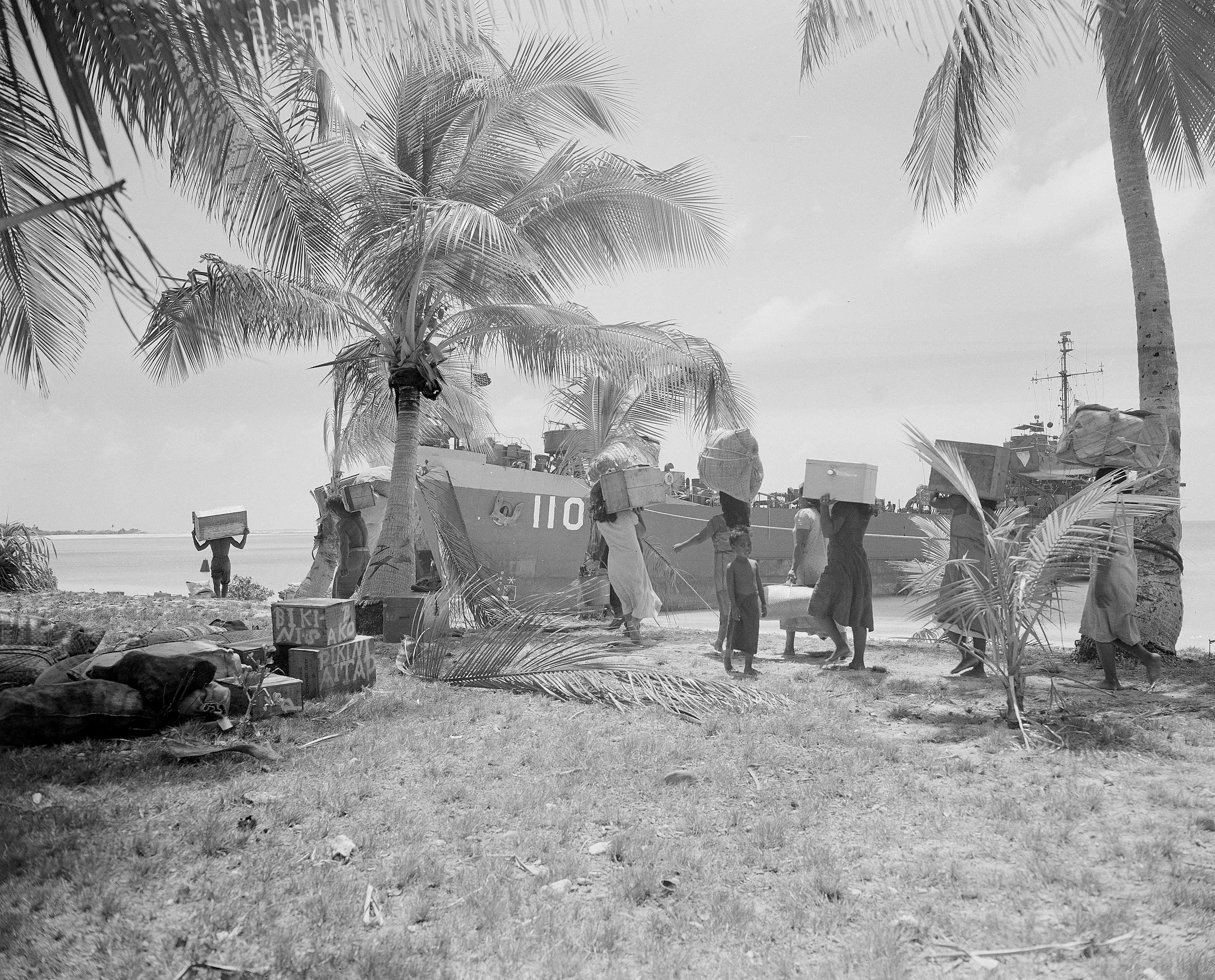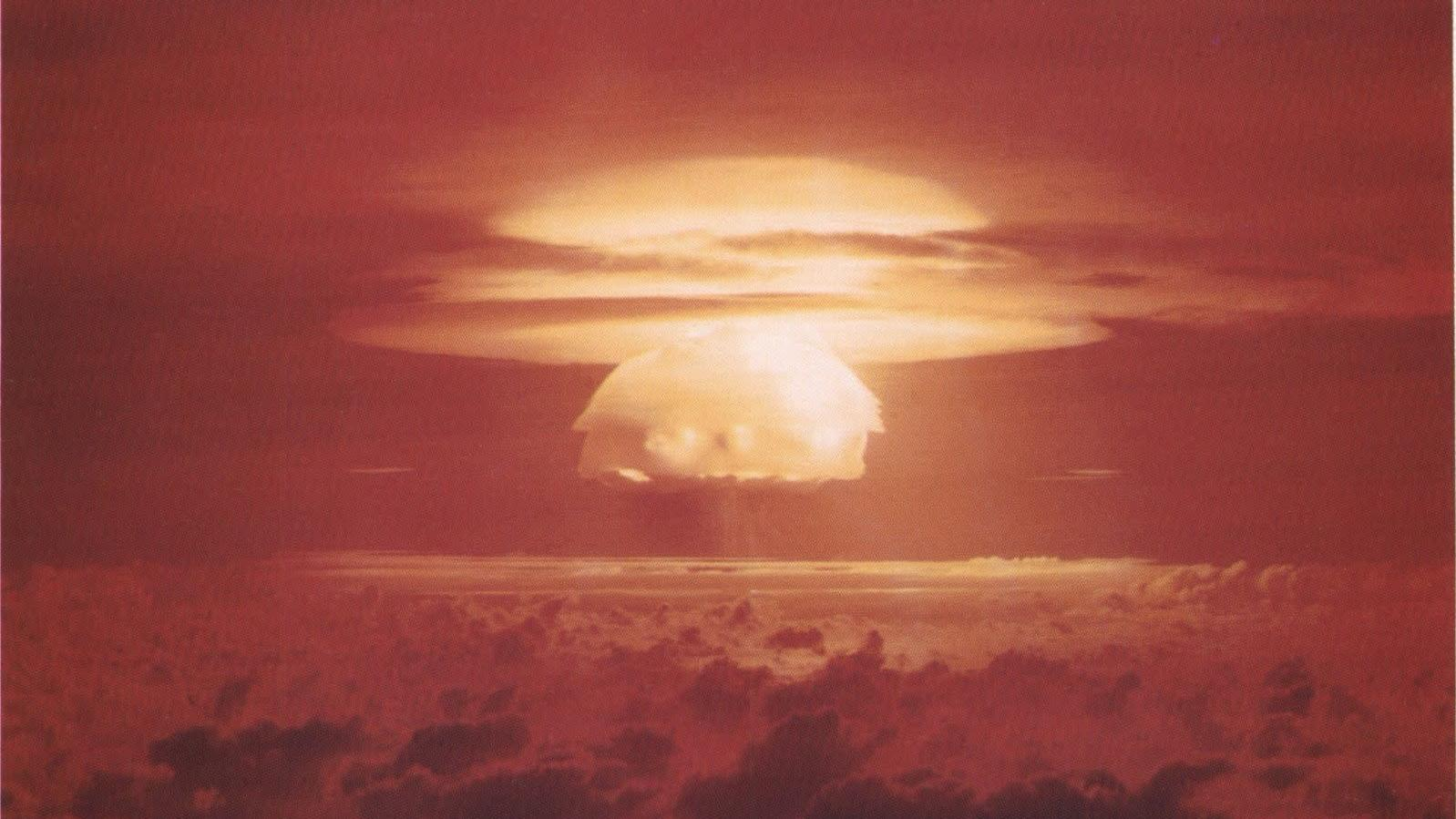Don't Name Your Beer For Nuking Somebody's Home
A Texas-based beer company stirred up controversy earlier this month when it was revealed to have named a beer after the site of nuclear weapons tests. The Manhattan Project Beer Company recently re-released its Bikini Atoll beer, named after the site of U.S. nuclear weapons tests in the South Pacific in the 1940s. Somehow the government of the Marshall Islands and Marshall Islanders worldwide got wind of it and the result was about what you would expect: a shitstorm.
The government of the Republic of the Marshall Islands, of which Bikini Atoll is part, sent a letter to the company criticizing it and calling the naming "unacceptable."
Bikini Atoll was the site of nearly two dozen U.S. nuclear weapon tests between over a 12-year period. Under a series of tests code-named Crossroads, Castle, Redwing, and Hardtack 1, the U.S. detonated 23 nuclear and later thermonuclear weapons. The largest test, Castle Bravo, was a nightmarish device that maxed out at 15 megatons—about 1,000 times the size of the atomic bomb dropped on Nagasaki (more on that later.)
In 1946 the 167 original residents of the atoll, known as Bikinians, voluntarily resettled elsewhere in the Marshall Islands. The testing commenced later that same year, taking place both above ground and underwater. Frankly, it's sort of surprising that the atoll is still there at all.
Testing halted in 1958, and in 1963 the atmospheric test ban outlawed above ground nuclear testing altogether. Still, the damage had been done to Bikini Atoll, the Marshall Islands, and the Marshallese people.
According to the international Comprehensive Test Ban Treaty Organization:
U.S. testing in the Marshall Islands has had long-term effects on health and the environment. A medical report (PDF) compiled by the National Institute of Health, Maryland, and the Brookhaven National Laboratory, New York, found that the development of thyroid diseases has been the major late effect of radiation exposure of the Marshallese people. In 1972, the U.S. Atomic Energy Commission declared (PDF) the islands had seen a "remarkable recovery" and more than 100 people moved back to Bikini. However, laboratory tests in 1978 indicated that unacceptably high levels of radiation remained on the atoll and Bikini was evacuated again. In 1997, the International Atomic Energy Agency (IAEA) concluded that Bikini "should not be permanently resettled under the present radiological conditions." (Link)
When word got out about the new Bikini Atoll beer, things got ugly fast. According to the Associated Press, Marshall Islands Health and Human Services Secretary Jack Niedenthal wrote the company urging them to rename the beer.
"The bottom line is that your product makes fun of a horrific situation here in the Marshall Islands," Niedenthal wrote, "a situation that I promise you is still ongoing—to make money for your company."
In response, the company took to social media to state that Bikini Atoll beer was "creating awareness" of U.S. nuclear programs. You know, because the Marshallese people really need a small craft beer company in Texas to help them get the word out.
As one person on Micronesiaforum.org asked: "What if it was a Micronesian brewing company came out with a 9/11 or mass school shooting cans in the name of 'spreading awareness'?"
Curiously, in the company's mentions of its beers—all of whom have a nuclear tie-in, like "Plutonium-239", "Half Life", and "Hoppenheimer", there is no mention of U.S. nuclear programs. On its website the company seems to acknowledge stumbling onto the whole nuclear thing, referring to their early beer making effort as "the Manhattan Project", which then lead to, "cool beer names like Half-Life and Superfortress" (Thankfully for the company "Superfortress", the name of the B-29 heavy bomber that killed more than 300,000 people during World War II, is no longer on their beer menu.)

Ironically, complaints about the naming did what the Manhattan Project Beer Company claimed to do but never actively did—raise awareness about U.S. atmospheric nuclear testing and the plight of the Marshallese people. The protests went went viral and, well, here you are reading this right now. The company weathered the social media storm and still lists Bikini Atoll on their list of beer offerings.
In the—fortunately small—world of associating alcoholic beverages with atomic warfare, the Bikini Atoll beer controversy is actually rather mild. The all-time king of tacky is probably Naga Sake. Naga Sake was, until recently, brewed in the United States, and the name was clearly a play on the site of the second atomic bombing in 1945. If there was any doubt about the connection, the sake was sold in a blue bottle that resembled a stylized bomb. "Fat Man", the atomic bomb that was dropped on Nagasaki, had a 15 kiloton yield and killed 70,000 people. The sake, which is described as a "delicious accompaniment to a light meal" is apparently no longer in production, which is to say the company that made it got out in the nick of time.
Today every brand is a global brand, especially when there's something to be outraged about on the internet. The Manhattan Beer Company's defenders on social media claim the furor is "manufactured," but the historical horrors in this case are well documented.
The lesson of this story: if you're going to name your product after anything—anything at all—at least spend a few minutes online to see if the reason why you even know the name is because of something that gave people cancer.
